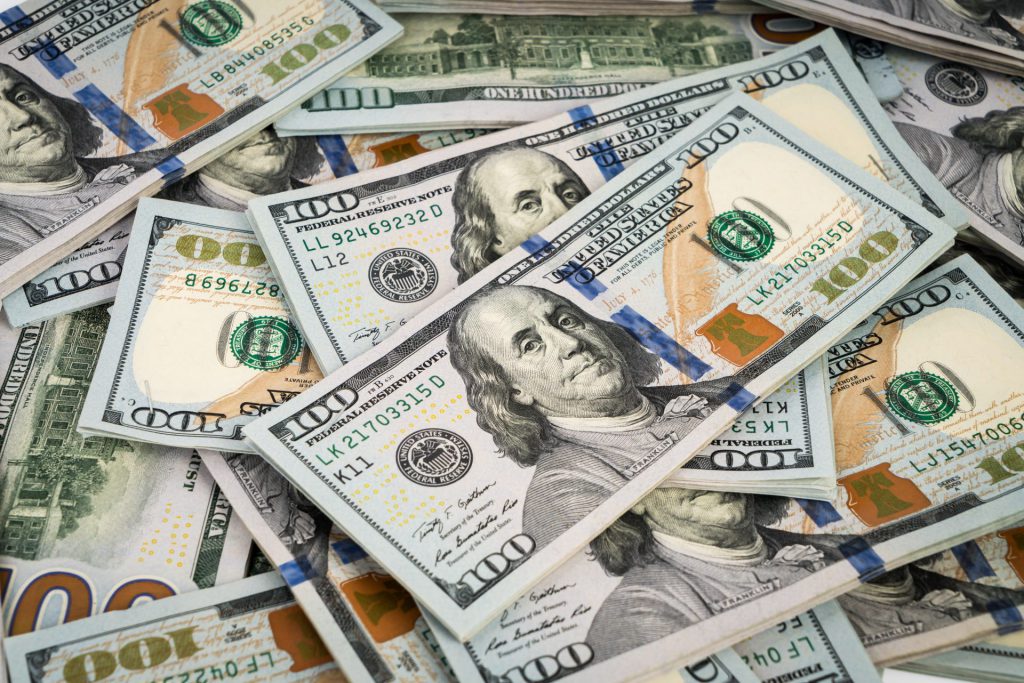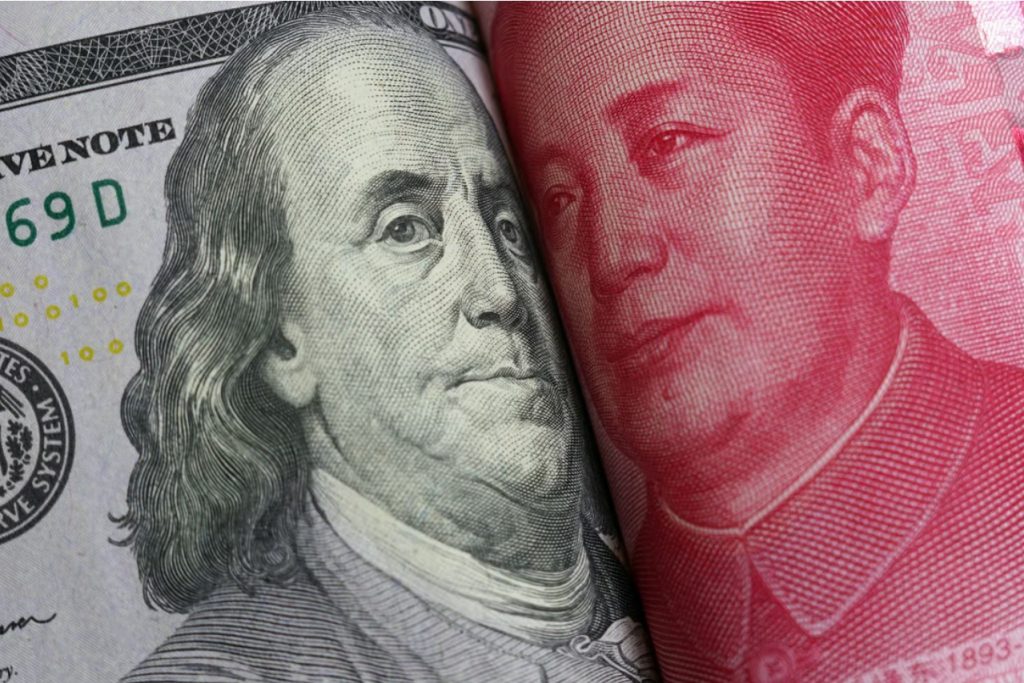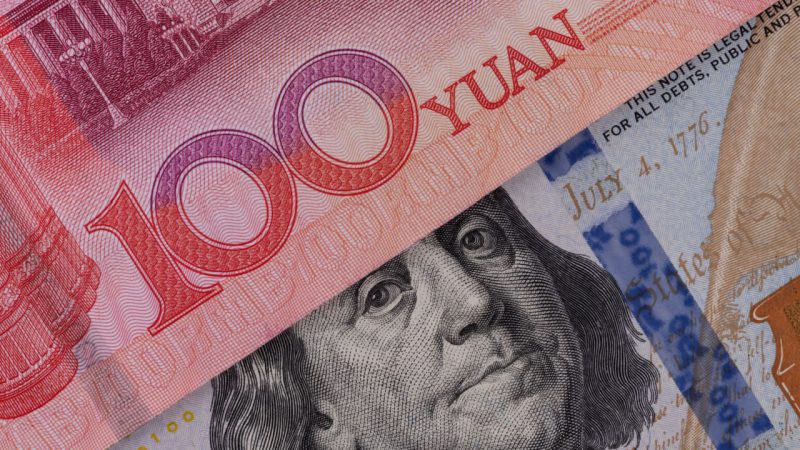In a massive development for the BRICS de-dollarisation plans, China’s Yuan is cheaper than the US dollar for the first time in 20 years. Indeed, the Atlantic Council report notes that for the first time in two decades, it is cheaper to conduct short-term borrowing in the renminbi as opposed to the greenback.
The report highlights the growing alteration in the perspective of international currencies. Specifically, it expresses the all-encompassing reality of de-dollarization in the modern landscape. BRICS initiatives are one part of a larger story as to why the international prevalence of the greenback is set for a downward turn.


Also Read: BRICS Continue Gold Buying Spree in 2024
Borrowing in China’s Yuan Cheaper than US Dollar For First Time in 2 Decades
Throughout 2023, the BRICS economic alliance had firmly embraced its de-dollarization stance. Indeed, the presence of sanctions on Russia, and sanctions risk for other nations in the bloc, led to the initiative being a focal point. Moreover, the alliance had also made a concerted effort to increase unilateral trade in local currencies. Therefore, establishing a trend that could be embraced on a global scale.
Although the greenback has certainly proven to remain atop the most used global currencies, change is brewing. Subsequently, one report has highlighted that amid BRICS developments, China’s Yuan is cheaper than the US Dollar for the first time in 20 years.


Also Read: BRICS: US Dollar Ranked Last in Top 10 Strongest Currencies In The World
Specifically, the report notes that short-term borrowing is cheaper in the renminbi as opposed to the greenback. However, that is not the only point of interest regarding lessening the prominence of the dollar. Indeed, it has become a global reality that diversification from central banks was a clear focus.
Various countries have sought the acquisition of gold throughout last year. Moreover, China and Russia are not the only nations increasing the use of the yuan. The two nations only account for 27% of trade settlements in the currency. 70% is settled in Beijing’s trade with Asia, Brazil, Argentina, and other Gulf countries.
Earlier this week, US Senator Marco Rubio identified expansion as a further threat to the US dollar’s status. Indeed, it spoke to the growing consensus globally over the move away from international reliance on the greenback. If more nations implore these BRICS strategies, the United States could see its global reserve status threatened, and facing irreparable risk.





